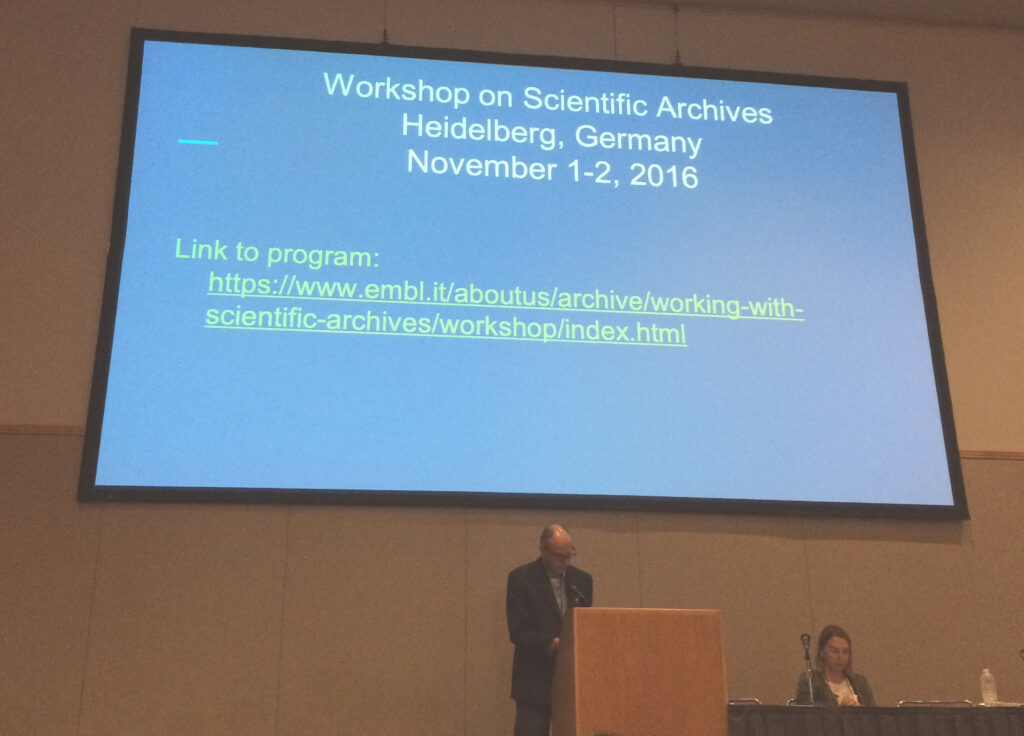It’s been a whirlwind last couple of weeks for me as I bounced from conference to conference, but as I settle back in it’s been exciting to collect my thoughts on what I’ve learned. And while it’s still fresh in my memory, this is a brief report back from the largest conference I attended — the annual meeting of the Society of American Archivists (SAA) which was held last week in impossibly-quaint Portland, OR.
Being the digital archivist, I mostly spent my time in sessions focused on processing, preserving, and providing access to digital materials, in all the different forms that can take. One of the most fruitful of these was hosted by colleagues from UCLA, UCB, Stanford’s Hoover Institute, Cornell, and Emory, and was entitled “What we talk about when we talk about processing born-digital.” This session reported on an effort to establish shared definitions for what it means to process born-digital archival collections. Because this field is so new, what is considered “processing” a collection at one institution might be a totally different set of tasks from that performed at another. To address this, the group is attempting to identify which steps are essential or recommended, and assign different processing levels based on these frameworks.
To attempt to break all these steps out in a clear way is an immense amount of work, so I’m incredibly excited that my colleagues have begun to take on this huge task. It will help us all out in a massive way.
UCSF was not without good representation, as our own Polina Ilieva moderated several events — one that was a meeting of the section on Science, Technology, and Health Care archives, and one that was a panel discussion on Collecting and Preserving contemporary science in institutional archives.

A very poor photo of Polina Ilieva taking over as Senior Co-Chair of the Science, Technology, and Health Care Section of the Society of American Archivists
Finally, some of my most interesting food for thought came from a panel on archival responses to climate change. The panel covered everything from Native Hawaiian community preservation of historic material endangered by sea level-rise, to projects acquiring better data to map which archival repositories are likely to be most affected by a changing climate. Especially pertinent for my work was a presentation urging us as digital archivists to think more explicitly about what kinds of energy use we are engaging through our different preservation practices. Simply put: current digital preservation practices rely on cheap data storage, and cheap data storage relies upon energy from fossil fuels. So where can we start to change that?
More updates soon as we start to engage with all these thoughts more directly at UCSF.
